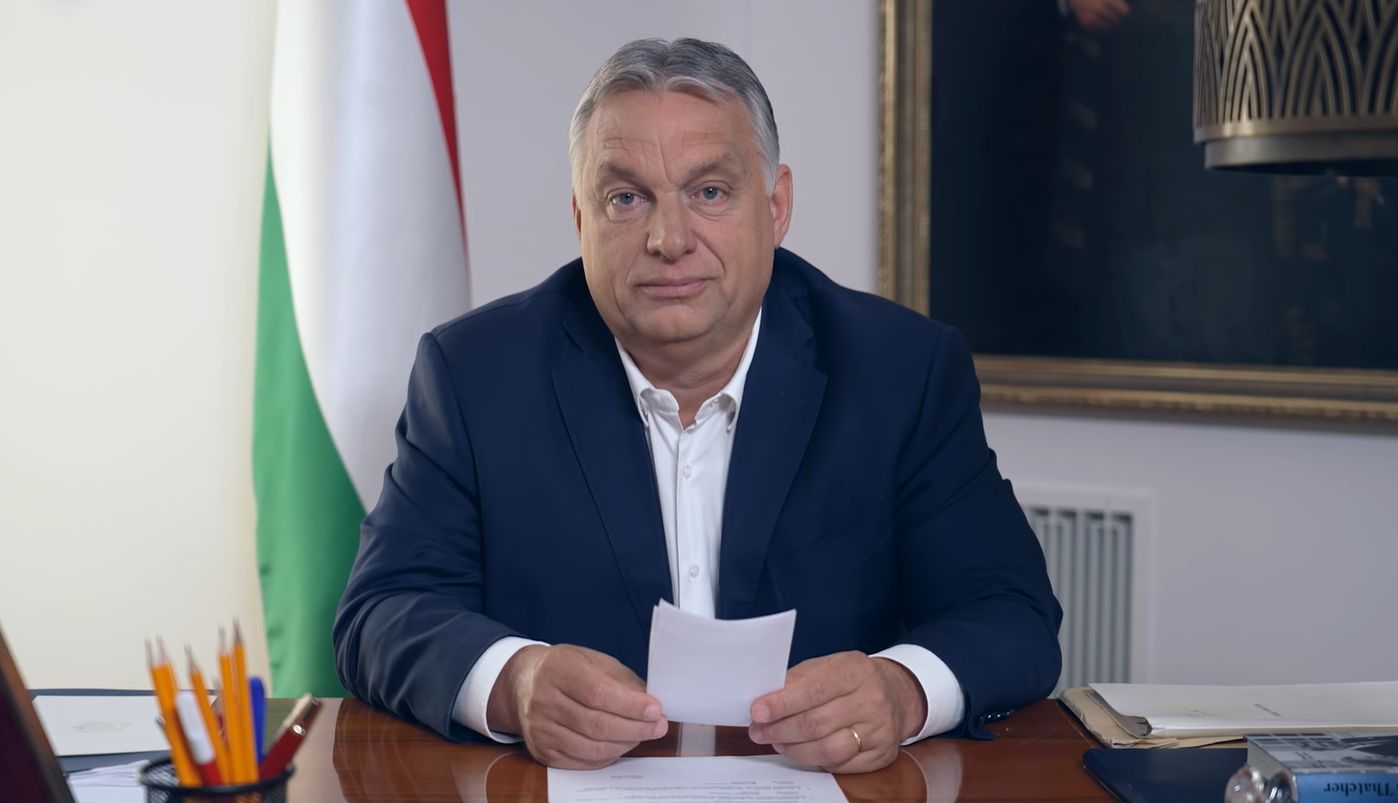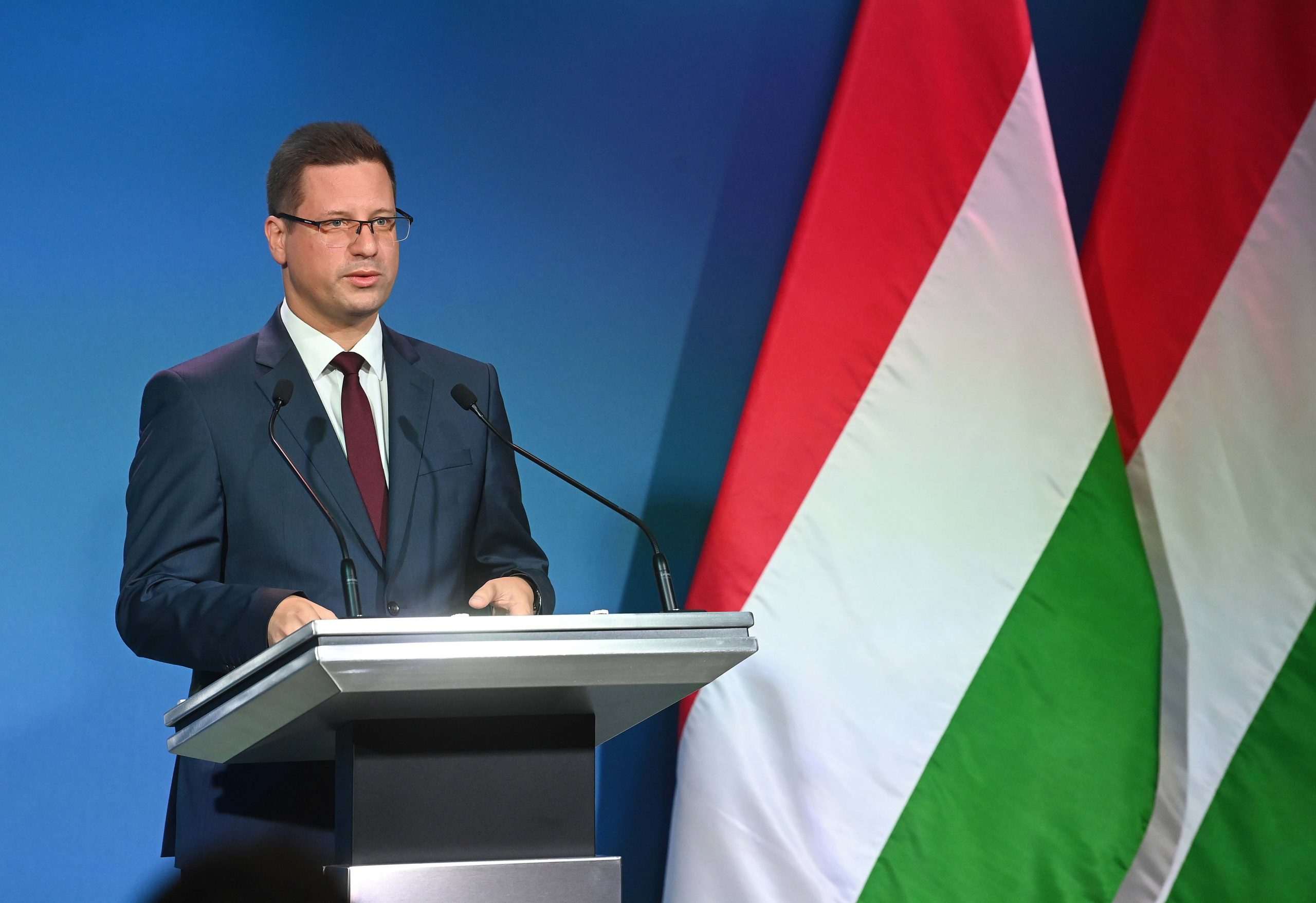
"Brussels has clearly attacked Hungary," Orbán said.Continue reading

The referendum on child protection will be held at the end of 2021 or early 2022, and is expected to strengthen Hungary’s position, the prime minister’s chief of staff told a regular press briefing on Thursday.
Gergely Gulyás said the prime minister had announced the five-question referendum on child protection in response to the events of the past weeks, which the government saw as an “attack from Brussels”.
If the referendum will be valid, the regulations will have to stay in force for three years, Gulyás said in response to a question. The government will specify the reinforced laws at a later date, and will announce whether further legislation has become necessary, he said.
Gulyás said there were, to his knowledge, no cases where gender reassignment surgery was promoted for minors in Hungary, and said the amendment was designed to prevent such cases.
Citing Hungary’s constitution, Gulyás said “human dignity is inviolable.” It is the state’s constitutional obligation to perform the tasks of child protection, he said.
Concerning the European Union’s post-pandemic recovery fund, Gulyás said an agreement had already been reached, but Brussels “re-opened” the issue after Hungary passed its child protection law, followed by continued “political accusations” and a media campaign launched against the country.
The government is continuing the talks on the use of the EU’s recovery fund, but will also allocate monies from the budget and announce tenders “to make sure that Hungarian voters feel the EU funding is secondary” to economic recovery, he said. EU funds are regularly pre-financed, and the government will continue that practice, he said.
Gulyás said that if EU funding will be withheld from Hungary at all, it will be because of the EU’s objections to the child protection law rather than risk of corruption as stated in the European Union’s recent report on the rule of law in Hungary.
Linking payments of the EU’s Recovery and Resilience Facility (RRF) to “judiciary reform” in Hungary is “nonsensical”, Gulyás said. The Hungarian judiciary reform was concluded nine years ago in perfect coordination with the European Commission, and so the condition is actually a criticism of the previous Commission rather than the government, he said.
An agreement on the recovery funding is “up to the Commission … but our experiences in the past few days are not good”, he said.
Since education is in the hands of the member states, the EC’s argument is “extremely week”, he said.
A referendum probing Hungarians’ view on migration in 2016 contributed to the government’s success in stopping the EU from forcing mandatory resettlement quotas on Hungary, Gulyás insisted.
A clear stance of Hungarians is the only tool in the government’s hands against the current infringement procedure, he said. It will help the government to create child protection measures in line with the citizens’ preferences, he said.
The issue is a “fight the whole of central Europe is engaged in, where we have to show that the region’s culture, values and identity are as much a part of the EU as that of Western Europe,” Gulyás said. A successful EU is “unimaginable” in the long term without their coexistence, he said.
Hungary continues to strive for “loyal cooperation” with the EU, Gulyás said. “Hopefully, the European Commission’s head will be able to keep its institution in order,” he added. “It is particularly conflicting to see the Czech commissioner talk about corruption, as he himself had been in prison for graft,” he said.
It is in Hungary’s interest to stay in the EU, but it will maintain its right to influence the “club’s rules” and to decide on issues that lie within member state competencies, he said.
Although Hungary’s EU membership “has no alternative”, the government rejects EU institutions’ attempts at “stealthy power grabs” and to claw competencies from member states, he said.
Featured photo by Noémi Bruzák/MTI